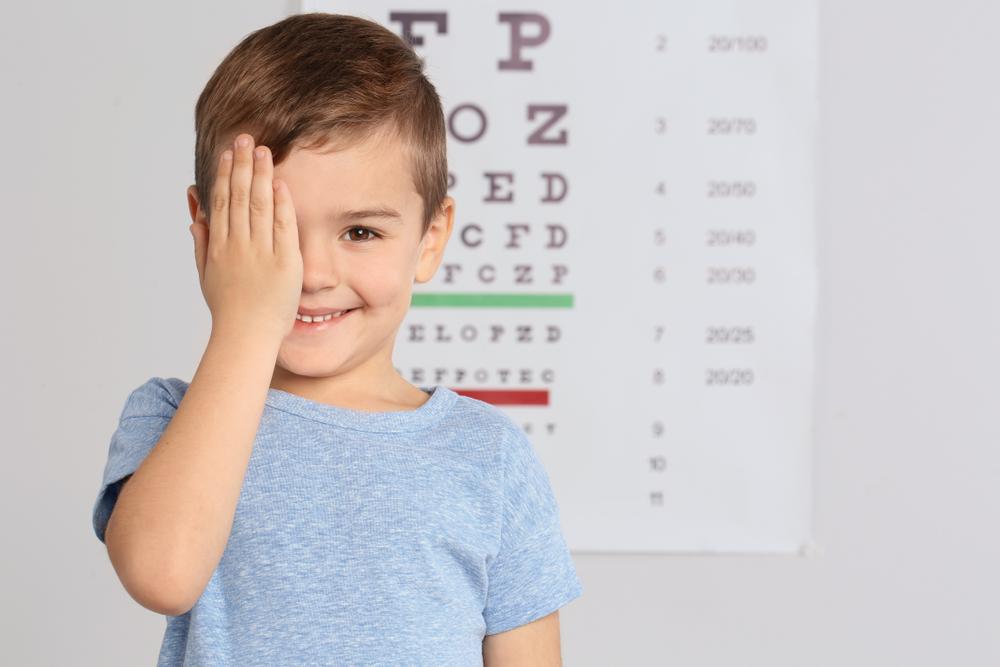
Your child's vision plays a crucial role in their academic success. Good vision is essential for effective learning, as it allows children to clearly see the blackboard, read textbooks, and focus on their schoolwork. Vision problems can make it challenging for children to keep up with their peers, leading to difficulties in learning and academic performance.
Visual skills, such as clear eyesight, eye coordination, and the ability to focus, are critical for children to thrive in the classroom. When these skills are compromised, children may struggle with reading, writing, and understanding the material presented to them. This can lead to frustration, low self-esteem, and ultimately, poor academic outcomes.
Common Eye Conditions in Children
Some of the most common eye conditions that can affect children's academic performance include:
• Refractive Errors: This includes nearsightedness (myopia), farsightedness (hyperopia), and astigmatism, which can make it difficult for children to see clearly at various distances.
• Amblyopia (Lazy Eye): This condition occurs when one eye develops poorer vision than the other, often due to a difference in refractive error or eye alignment.
• Strabismus (Eye Misalignment): This is a condition where the eyes are not properly aligned, causing them to point in different directions.
• Convergence Insufficiency: This is a problem with the eyes' ability to work together, which can make it challenging for children to focus on near-distance tasks, such as reading and writing.
• Binocular Vision Disorders: These are issues with the way the two eyes work together, which can lead to problems with depth perception, eye coordination, and visual processing.
Signs and Symptoms of Vision Problems
It's important to be aware of the signs and symptoms that may indicate a vision problem in your child. These can include:
· Frequent headaches or eye strain
· Blurred or double vision
· Difficulty reading or focusing on close-up tasks
· Frequent eye rubbing or squinting
· Tilting or turning the head to one side
· Covering or closing one eye to see better
· Difficulty with hand-eye coordination or sports
· Frequent loss of place when reading
· Avoiding close-up work or reading
If you notice any of these signs in your child, it's important to schedule a comprehensive eye exam with an optometrist.
The Impact of Vision Problems on Learning and Academic Success
Vision problems can have a significant impact on a child's ability to learn and succeed academically. Children with undiagnosed or untreated vision issues may struggle with the following:
· Difficulty reading and comprehending written material
· Challenges with writing and copying from the blackboard
· Problems with hand-eye coordination, affecting their ability to perform tasks like drawing or using scissors
· Difficulties with spatial awareness and depth perception, which can impact their performance in subjects like math and science
· Attention and concentration problems, as they struggle to focus on the task at hand
· Behavioral issues, as they become frustrated or disengaged with their schoolwork
These challenges can lead to poor academic performance, low self-esteem, and even behavioral problems, as children try to cope with the difficulties they are experiencing.
The Role of Regular Pediatric Eye Exams in Early Detection and Intervention
Regular pediatric eye exams are crucial for the early detection and treatment of vision problems in children. These comprehensive exams can identify a wide range of vision issues, including those that may not be obvious to parents or teachers.
By catching vision problems early, parents and educators can work together to implement appropriate interventions, such as prescription glasses, or other treatments. This early intervention can make a significant difference in a child's academic success, as it helps them overcome the challenges posed by their vision issues and develop the necessary visual skills for effective learning.
The Benefits of Early Intervention for Vision Problems
Early intervention for vision problems can have a profound impact on a child's academic and overall development. By addressing vision problems early, children are better equipped to keep up with their peers in the classroom, leading to better grades, increased confidence, and a more positive learning experience. Good vision is essential for the proper development of a child's cognitive abilities, including their problem-solving skills, memory, and attention span.
Vision problems can contribute to behavioral problems, such as frustration, inattention, and even social withdrawal. Early intervention can help alleviate these issues and promote more positive behaviors. Addressing vision problems early can have lasting benefits, as children develop the necessary visual skills to thrive throughout their educational journey and into adulthood.
Schedule Your Child’s Eye Exam with Eye & Vision Center Today
Your child's vision is a crucial factor in their academic success. By understanding the importance of vision in learning, recognizing the signs and symptoms of vision problems, and taking advantage of regular pediatric eye exams, you can help ensure your child has the visual skills they need to thrive in the classroom and beyond.
If you have concerns about your child's vision, schedule an appointment with Eye & Vision Center. Our experienced optometrists can provide a comprehensive assessment and work with you to develop a personalized treatment plan to help your child reach their full potential. Visit our office in Pleasant Hill, California, or call (925) 232-8500 to book an appointment today.




